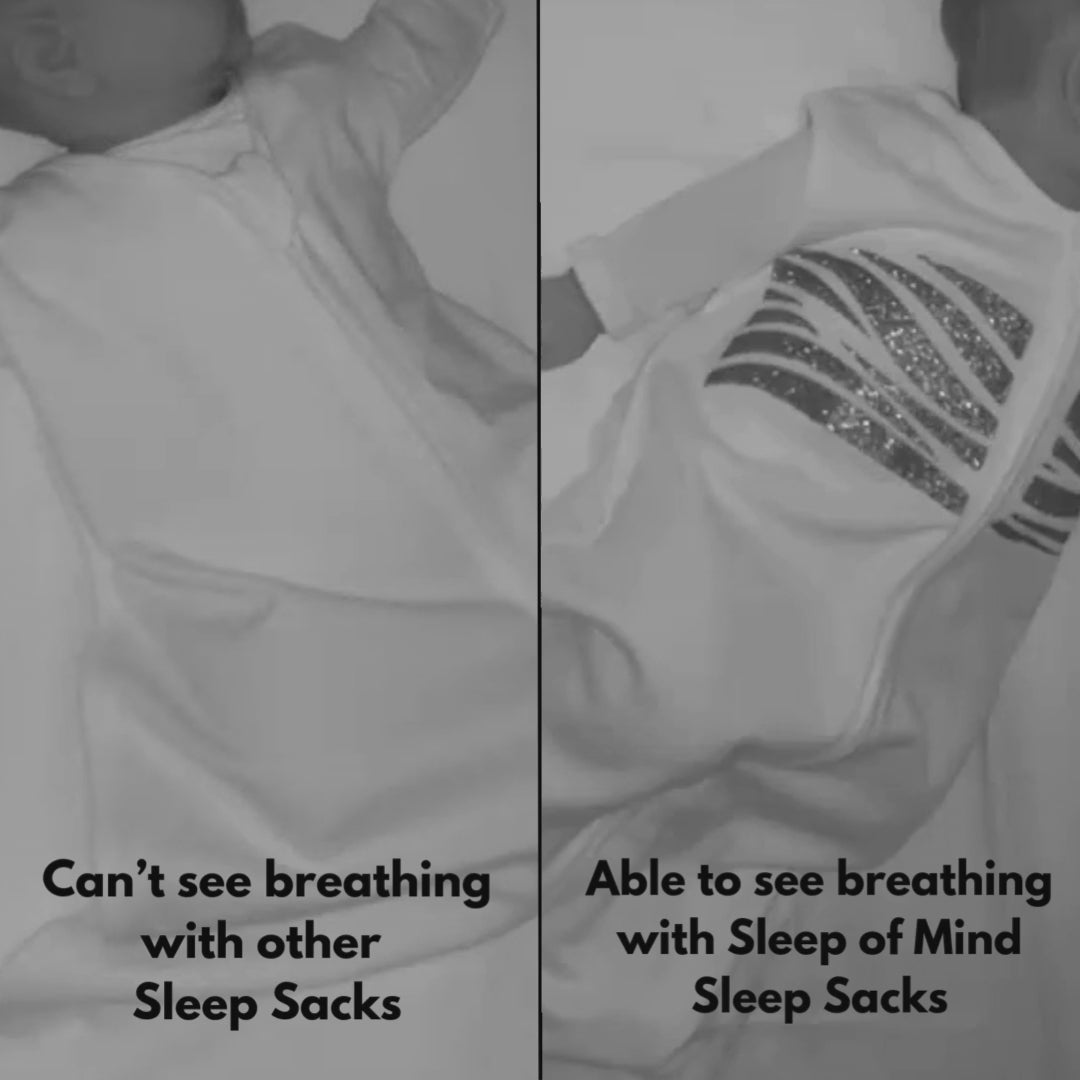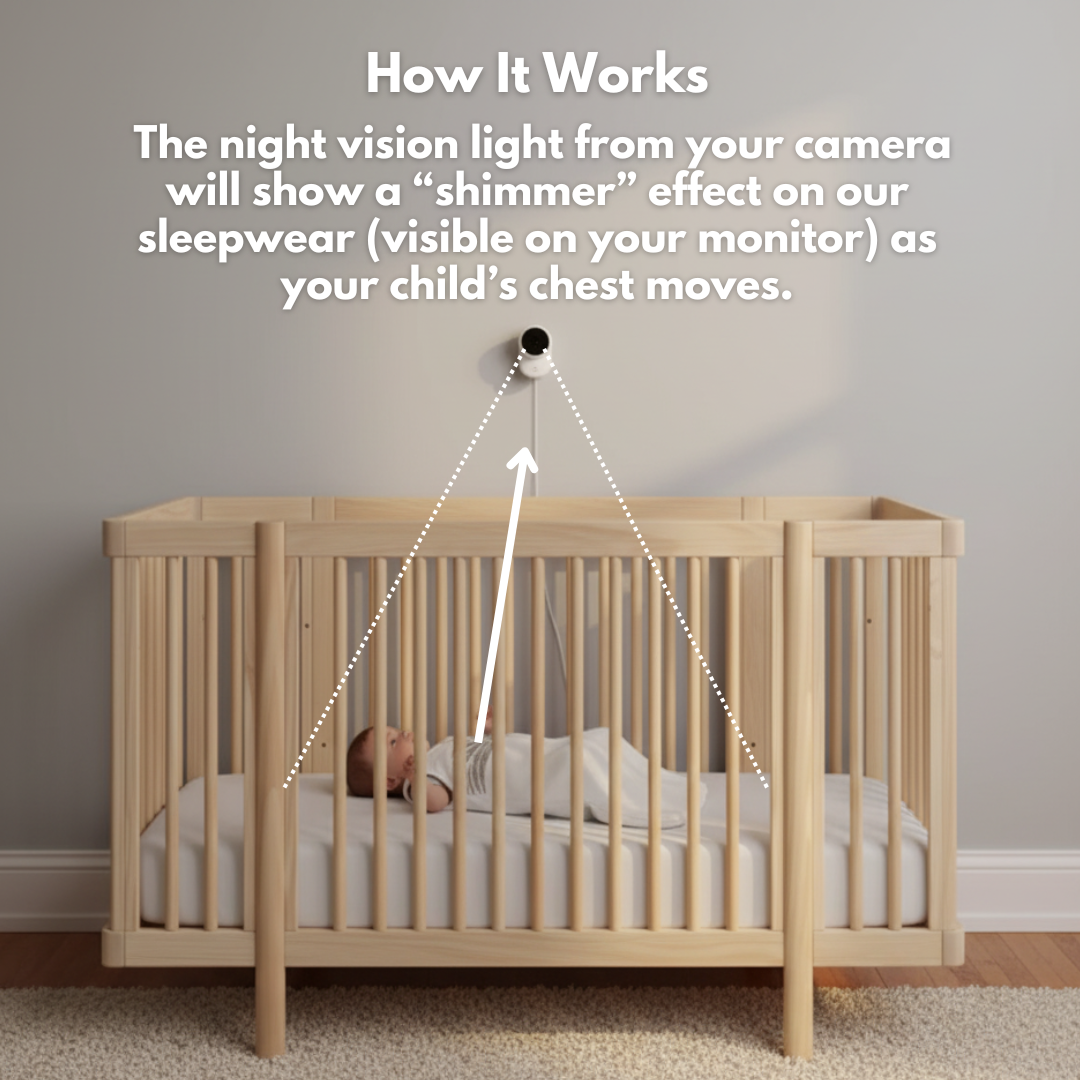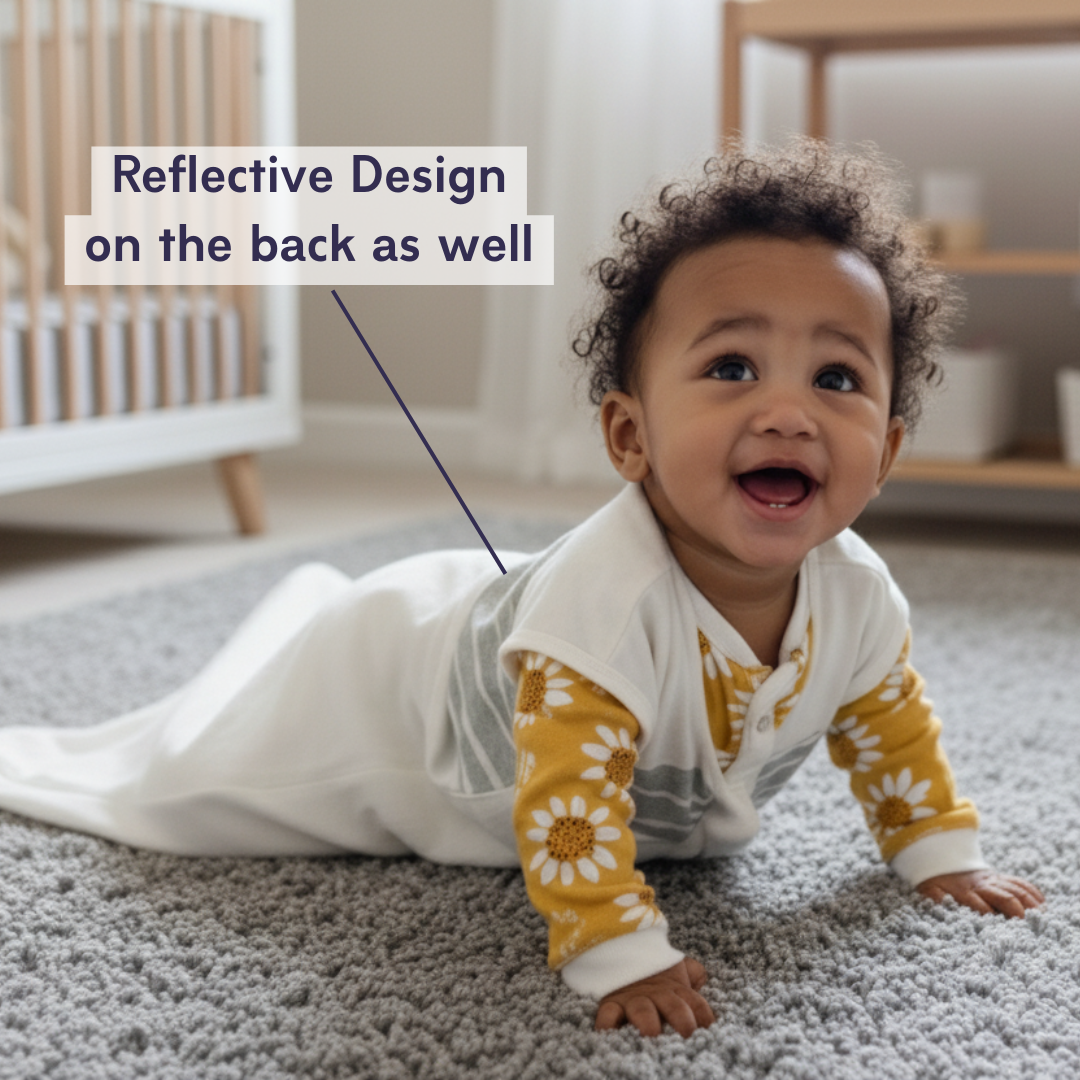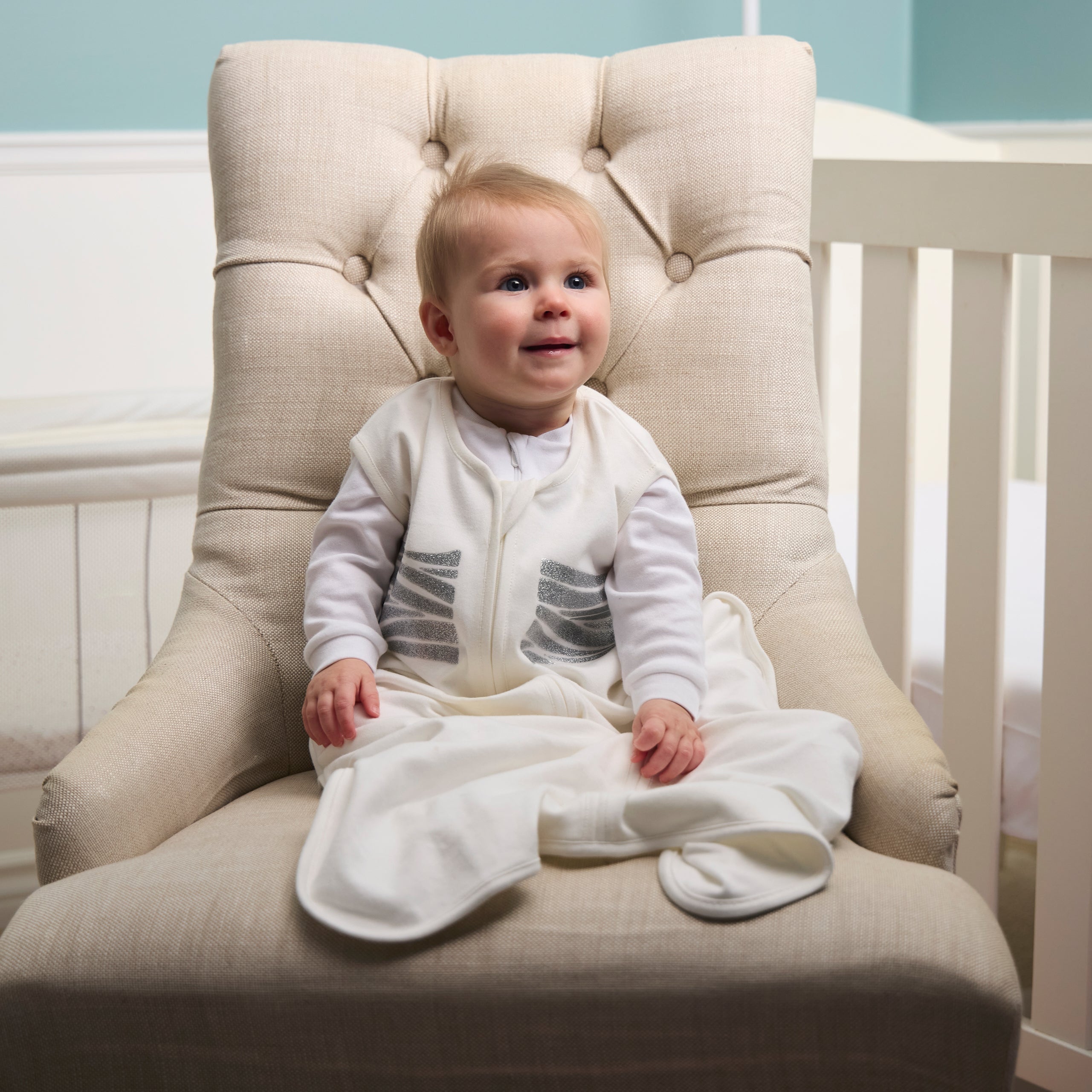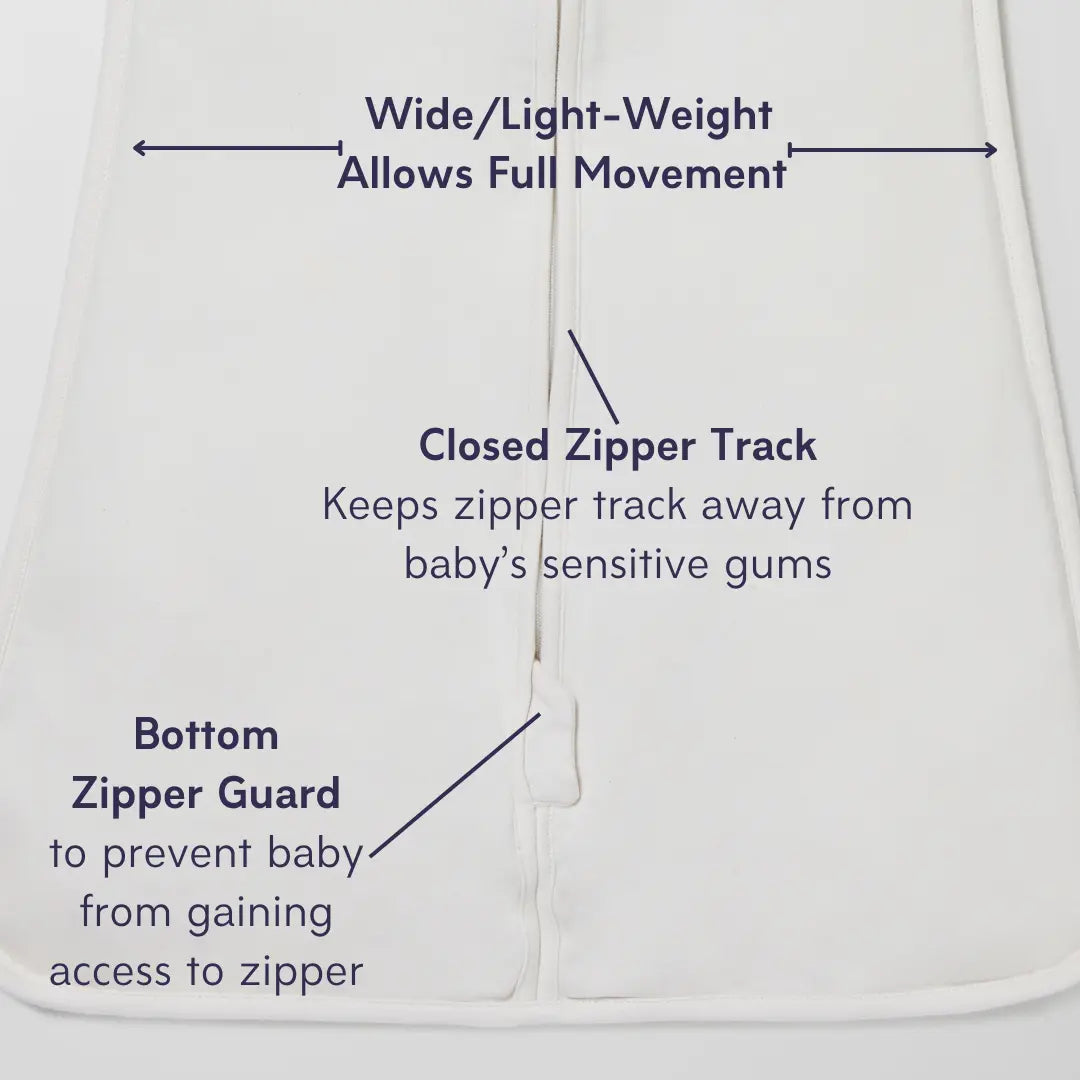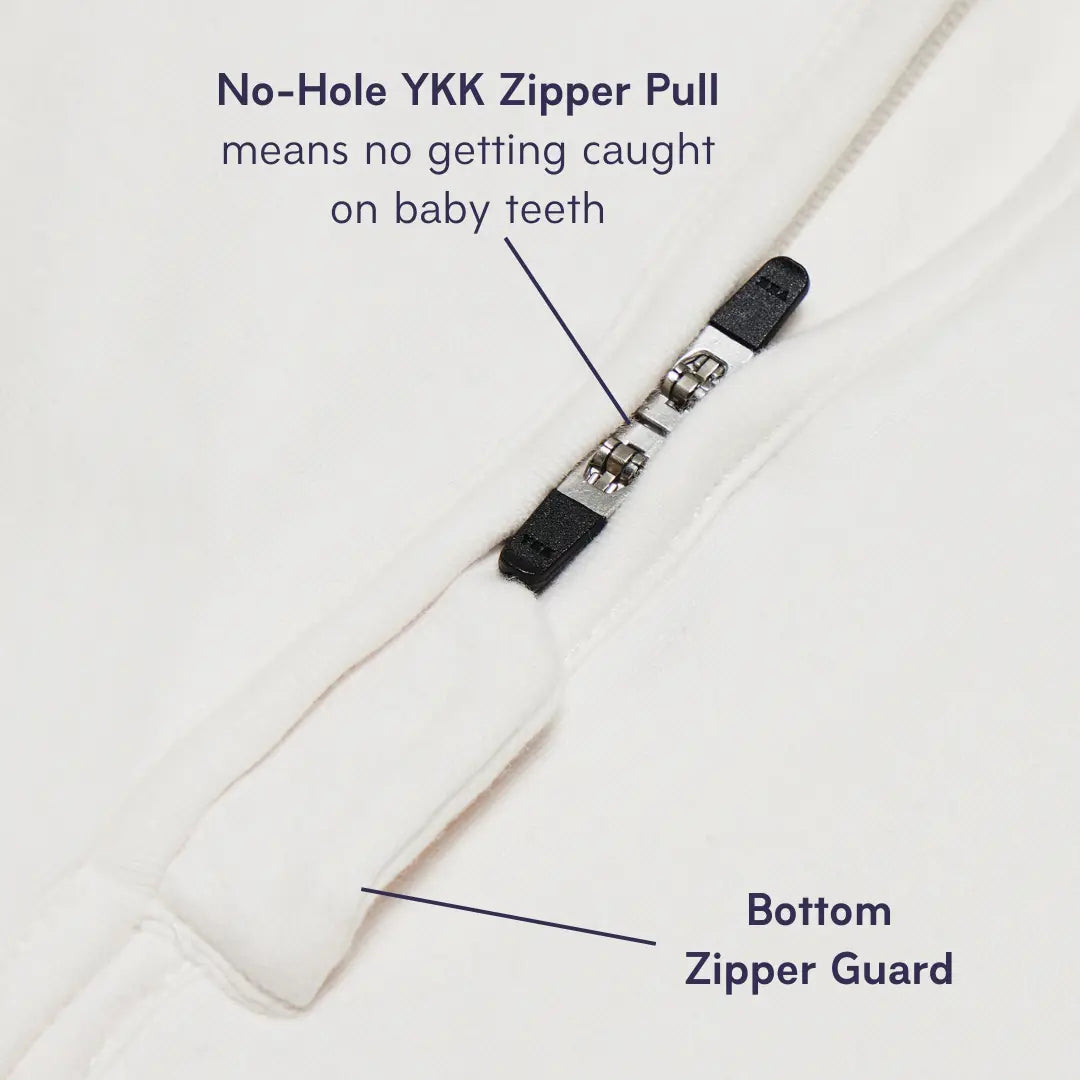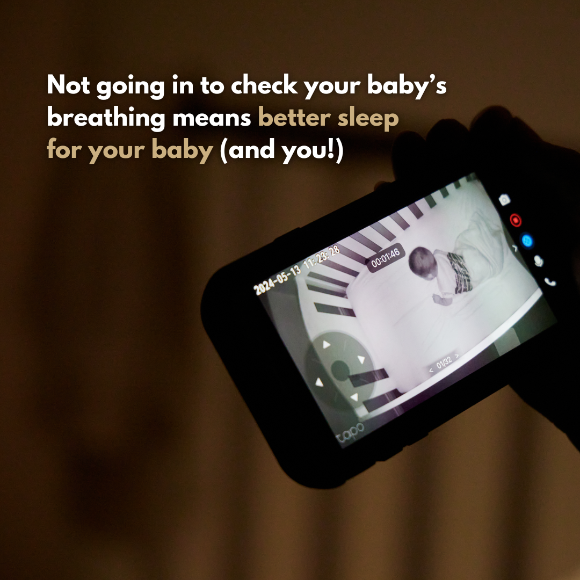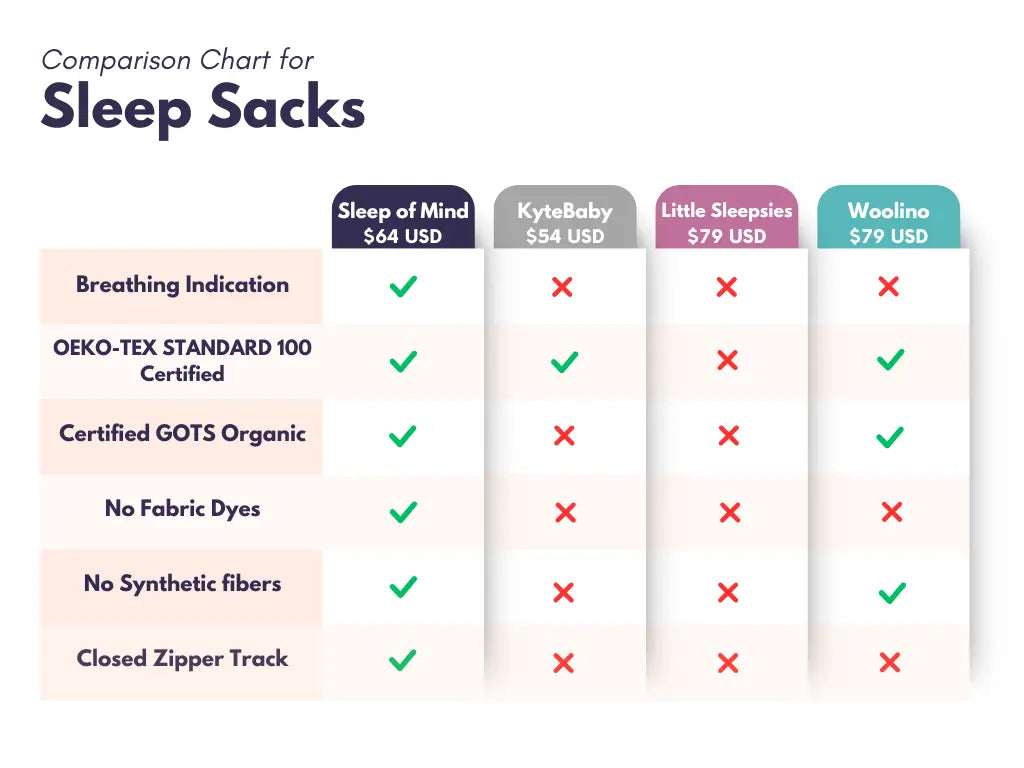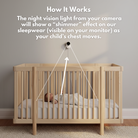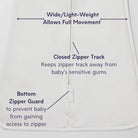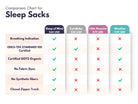As a mom and a sleep consultant, I've heard these questions a million times from exhausted families:
“How do I get my baby to sleep through the night?”
“Why does my baby take short naps?”
“How can I get my toddler to fall asleep without me?”
“Why does my child wake up crying?”
“How do I get my child to sleep in later?”
“How do I get my baby to nap longer?”
If you’ve asked any of these questions, we have a game changer of a tip for you. An early bedtime.
It may seem like a small change, or one that is counterintuitive, but its effects can ripple throughout the night and day, leading to many of the most common sleep issues being resolved.
Early bedtimes offer numerous benefits that are often overlooked. They help prevent overtiredness, reducing bedtime battles, night wakes, and early risings. An early bedtime also makes the routine smoother, creating a sense of security and predictability for your child.
If you're struggling to get your child to sleep soundly, you're in the right place. Let’s explore why an early bedtime is such an effective strategy for helping your child get better rest and maintain their routine.
How To Get Your Child To Sleep Through The Night
Let’s talk first about why they typically happen. Most night wakes are due to a child being overtired from not getting enough sleep in general. There are also other factors like hunger, teething, illness and so on, however when nothing seems to be a cause, it is almost always due to being overtired. The culprit here is the stress hormone cortisol, which is elevated when children are sleep-deprived. The hormone’s job is to keep the body more alert, which used to be helpful in caveman days when we needed to escape threats, but isn’t helpful today when a child needs sleep. It makes it harder for them to fall and stay asleep, forcing them awake through the night and early in the morning (even shortening naps). Giving your child an very early bedtime allows them to catch up on that missing sleep more easily by capturing more restorative, deep NREM sleep. This type of sleep is critical for reducing cortisol levels, thus reducing and helping to eliminate night wakes over time.

How To Get Your Child To Stop Waking Early
When a child has an early bedtime, they are able to catch up on missed day sleep at the onset of their night sleep, then they switch over to capturing their night sleep. So if they missed 1 hour of day sleep, then the first hour after they fall asleep at bedtime is dedicated to recouping some of that missed day sleep. After that, they will begin their night sleep, and repeating this overtime will help lower cortisol levels, which is why an early bedtime actually leads to a later morning wake up time. However you have to be consistent for a couple weeks. Don’t give up if you’re not seeing results or if the morning wake is getting earlier. It won’t happen quickly as it usually takes at least 2 weeks of consistent early bedtimes.
Also, make sure the sleep environment is set up for sleep success! Read more on how to do that in our article: #1 Baby Sleep Tip: Create An Optimal Sleep Environment

How To Get Your Child To Stop Taking Short Naps
Elevated cortisol levels are a big factor to why babies start taking short naps. In addition to an early bedtime, which let’s your baby catch up on missed day sleep, you’ll also want to give them more crib time so they have more opportunity to fall back to sleep. When a baby wakes crying from a short nap (anything under 1 hour) it often means they are still tired and now frustrated that they are awake. The exception would be an end of day nap when most babies biologically can only sleep for a short cat nap.
How To Get Your Child To Stop Waking Up Crying
When a baby falls asleep at bedtime but then wakes up crying shortly after, this is what is known as a false start. Again, this is typically due to a baby being overtired from the day. Either naps were short or bedtime was too late. An overtired baby typically cries at bedtime to signal they are uncomfortable and overtired, but the crying actually helps release that overtired energy. If your baby doesn’t get enough of that overtired energy out before they fall asleep, the elevated cortisol levels may wake them up after a short time, allowing them to cry out the remainder of that energy. If they are given an early bedtime and they are able to release that energy then they’ll sleep much more soundly through the rest of the night.
Crying before sleep makes many parents ask the question, why does my baby fight sleep? And really, the answer is they aren't fighting it, they're just overtired and need your support (in the room or out of the room) in working out that overtired energy so they can sleep more soundly and stop waking frequently.
Pro-Tip! If your baby is crying and it seems as though they can't get comfortable, it may be because their sleep sack is too restrictive. The Sleep of Mind sleep sack was made with full freedom of movement in mind. It has a wider cut so that baby's legs and hips can move freely and the 100% GOTS Certified organic cotton is very light weight, making it much easier to get into a comfy position for little babies. Plus you'll get the added benefit of being able to see the rise and fall of your baby's chest as they breathe, so when they're asleep, no more anxiety about their breathing! Check out how our Sleep Sack works.
How To Ease Toddler Bedtime Anxiety
Dealing with bedtime struggles with toddlers can be hard, but making bedtime earlier can really help. Even though toddlers have lots of energy during the day, they do better with going to bed earlier than you might think. Even just moving bedtime up by 45 minutes can make a big difference. It stops them from getting a second burst of energy and makes bedtime easier. Planning ahead and changing your family's routine to have an earlier bedtime can make evenings happier and calmer for everyone.

Early Bedtimes Support Skill Development
Having an early bedtime also allows children, especially babies, to spend more time practicing new skills in their crib before they fall asleep. Whether they're trying to roll over or stand up, this extra time helps them get better at these activities. It's not just physical skills; mental leaps, like learning new things, also benefit from this practice time. If you haven't read up on Sleep Regressions yet, you'll definitely want to read Sleep Regressions: What Are They And How You Can Get Through Them.
What Time is an “Early” Bedtime?
Now, you may be wondering, what exactly constitutes an "early" bedtime? Well, for babies under 12 months, it could be as early as 5:30 pm if naps were skipped or very poor, while for toddlers, aiming for 6:00 or 6:30 pm might be key. These early bedtimes are often temporary solutions to ease cortisol levels after disruptions like illness, travel, or developmental changes. They key is to offer the early bedtime consistently for at least 2 weeks. You won’t see results right away and many parents abandon ship after just a couple nights. But if you stick with it you’ll see marked improvements.
Actually, many children benefit from a slightly earlier bedtime than parents might initially think. It helps to prevent sleep issues from popping up when disruptions inevitably happen. Take a moment to reassess your family’s evening routine and consider adjustments that prioritize an earlier bedtime. This simple change can provide more evening time for parents to relax or tackle other tasks, creating a more harmonious bedtime routine.

At The End Of The Day
Implementing an early bedtime can significantly enhance your child's sleep quality and overall well-being. By addressing overtiredness, supporting developmental milestones, and creating a peaceful bedtime routine, you'll help your child—and yourself—enjoy more restful nights and better days. Take a closer look at your current schedule and see how this simple change can make a big difference.



